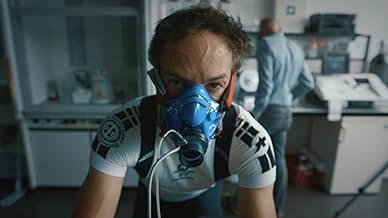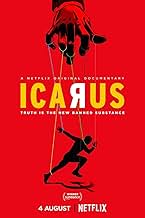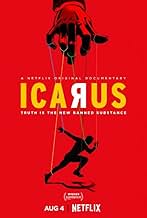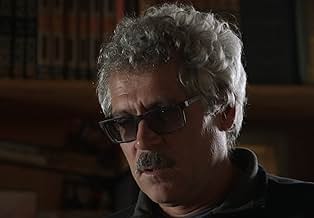Icarus, much like its mythological namesake, starts out openly enough. Writer/director Bryan Fogel, obviously undergoing a mid-life crisis, seeks to rise above his competition and win an long-eluded amateur bike race by subscribing to a doping program ala Lance Armstrong and Tyler Hamilton. His gonzo-ish film about cheating the system then takes a serious turn as he flies extremely close to the sun by becoming involved with Russian doping superstar, Grigory Rodchenkov, just prior to the 2016 summer Olympics and Russian scandal – the doping scandal that is, taking into consideration another very serious scandal that occurred in the United States later that year in November, an event this film alludes to.
Fogel's film presents a complete analysis of Russia's athletic doping program and its pervasive influence on all of its athletes while providing a revealing look at how the conspiracy came to light leading to the eventual banning of 68 Russian athletes from Rio. The documentary is so compelling you cannot look away.
Rodchenkov, who comes across as a favorite crazy uncle, blasts away on camera with truths and proofs that lead to WADA and the IOC's landmark decision. Rodchenkov equally has no problems with broadcasting his opinions concerning President Vladimir Putin's fear-laden regime. If Putin and the KGB can easily evade the IOC, imagine what other high-level larceny exists that can be used to, ahem, trump other standards.
Icarus presents art dictating life, where one rather flaky story uncovers a very-real conspiracy that affects so many. This is not merely a sports documentary, rather a politically human one with real consequences, and needs to be viewed. Here's hoping the Academy's nomination committee is taking note, as Icarus has the potential to win gold of its own.

































